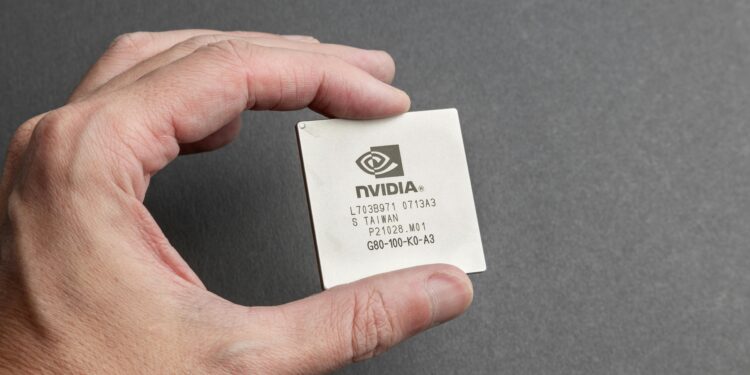Strong Demand for AI Chips Outstrips Supply, Driving Nvidia’s Growth
Nvidia (NVDA) CEO Jensen Huang is navigating a unique challenge: an overwhelming demand for the company’s AI chips coupled with a limited supply. As Nvidia transitions from its current Hopper AI platform to the more advanced Blackwell system, concerns have emerged about a potential lull in demand. However, Huang remains confident, emphasizing the robust demand for both platforms.
“People want to deploy these data centers right now,” Huang stated. “They want to put our [graphics processing units] to work right now and start making money and start saving money. And so that demand is just so strong.”
Despite the upcoming release of the Blackwell units, demand for the Hopper platform has not waned. “Hopper demand grew throughout this quarter — after we announced Blackwell — and so that kind of tells you how much demand there is out there,” Huang noted. He further explained that the complexity of these chips, which are integral to the world’s most sophisticated computers, poses significant challenges in meeting the surging demand.
“Every component, every part of our data center, is the most complex computer the world’s ever made,” Huang said. “And so it’s sensible that almost everything is constrained.”
Nvidia’s financial performance in the first quarter reflects this strong demand. The company reported adjusted earnings per share of $6.12 on revenue of $26 billion, marking a 461% and 262% increase from the previous year, respectively. Non-GAAP operating income reached $18.1 billion in the first quarter.
Looking ahead, Nvidia projects revenue of $28 billion, plus or minus 2%, for the current quarter, surpassing analysts’ expectations of $26.6 billion. This optimistic forecast underscores the sustained demand for Nvidia’s AI chips.
In addition to strong financial results, Nvidia announced a 10-for-1 stock split. Shareholders will receive 10 shares for every one share they currently own, effective June 10 for shareholders as of June 7. This move is expected to make Nvidia’s stock more accessible to a broader range of investors.
Nvidia also increased its quarterly dividend, with shareholders now set to receive $0.10 per share, up from $0.04. This decision aligns Nvidia with other Big Tech companies that have boosted their dividends, signaling confidence in the company’s ongoing growth and profitability.
As a result of these announcements, Nvidia’s stock rose over 9% in early trading Thursday, reflecting investor confidence in the company’s ability to meet the surging demand for its cutting-edge AI chips. Despite the supply challenges, Nvidia’s strong financial performance and strategic moves position it well for continued success in the rapidly evolving AI industry.
You might like this article:Alibaba Expands Cloud Footprint with New Data Centers











